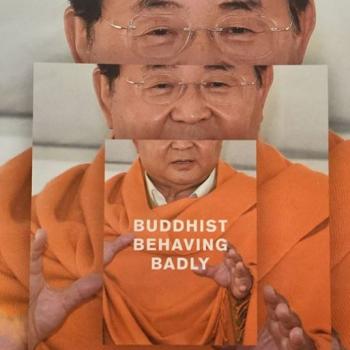Compassion, empathy, and care for others seems to be a hot topic of late, at least in my little corner of the universe. For today’s post I am simply borrowing some of that and bringing it together.
First, from the wonderful Denis Wallez (you can find him, this post, and much more on G+), is a collection of traditional sources on loving-kindness in Buddhism:
In Theravāda’s Pāli Canon, mettā (love [without clinging or possessiveness], loving-kindness, amity or benevolence) is one of the four “sublime states of mind” (or divine abodes, brahma-vihāras) recommended for cultivating interpersonal harmony and meditative concentration (I touched on being amicable to one’s thoughts during meditation inhttp://gplus.wallez.name/WtVLpWDe2wV).
In later canonical work, mettā is one of ten “perfections” (pāramī) that facilitates the attainment of Awakening.
There are two known versions of the mettā sutta: Karaniya mettā sutta (Sn 1.8) and Mettānisamsa sutta (AN 11.16). The first gives instructions while the second explains the benefits associated to mettā.
Sn 1.8:
“This is to be done by one skilled in aims
who wants to break through to the state of peace:
(…)
Do not do the slightest thing that the wise would later censure.Think:
Happy, at rest, may all beings be happy at heart.
Whatever beings there may be, weak or strong, without exception,
long, large, middling, short, subtle, blatant, seen & unseen, near & far,
born & seeking birth: May all beings be happy at heart.Let no one deceive another or despise anyone anywhere,
or through anger or irritation wish for another to suffer.
(…)”AN 11.16:
“(…) advantages are to be expected by familiarising oneself with thoughts of loving-kindness (metta), by the cultivation of loving-kindness, by constantly increasing these thoughts, by regarding loving-kindness as a vehicle (of expression), and also as something to be treasured, by living in conformity with these thoughts, by putting these ideas into practice, and by establishing them. (…)”Some advantages are:
• the mind can concentrate quickly;
• the countenance is serene;
• when the time comes, the practitioner dies without being confused in mind (which is key, for rebirth or for nibbāna).As interdependence would naturally suggest, there is no contradiction between loving others and loving oneself, it is thus not surprising that ‘benefits’ could be gained from opening one’s heart to others.
Regrets, remorse and shame are not supportive of your meditation and liberation. Taking care of others will help them and yourself.
#Buddhism#Dharma#buddhistcircle
• a great essay on the four “sublime states of mind” by Nyanaponika is at
http://www.accesstoinsight.org/lib/authors/nyanaponika/wheel006.html• The first excerpt is from the translation of Sn 1.8 by Thanissaro:
http://www.accesstoinsight.org/tipitaka/kn/snp/snp.1.08.than.html
The link also gives access to four alternate translations (by Ñanamoli, Amaravati, Buddharakkhita and Piyadassi).
• The second excerpt is from the translation of AN 11.16 by Piyadassi:
http://www.accesstoinsight.org/tipitaka/an/an11/an11.016.piya.html
The link also gives access to one alternate translation by Thanissaro.
Next, NellaLou over at the Enlightenment Ward shared this excellent RSA for a talk on “Outrospection”:
And third and finally, this video has been making the rounds on social media too:
http://www.youtube.com/watch?v=GDCFpxhEldQ
ps. if you feel so moved, my girlfriend is currently raising money for a local charity she volunteers for called One25, which works “with women trapped in street sex work, supporting them to break free and build new lives away from violence, poverty and addiction.”











